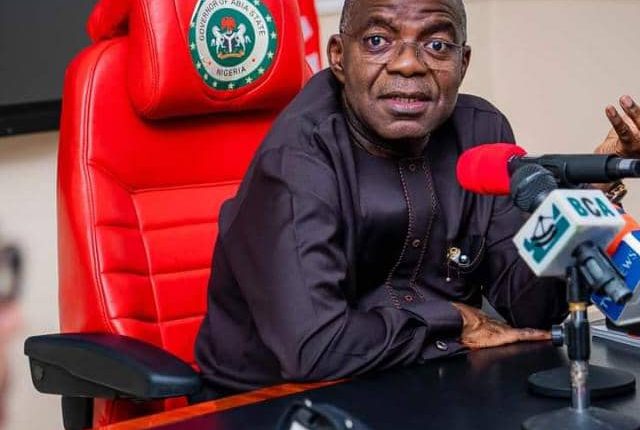BUILDING THE CAPACITY OF ABIA STATE FOR SUSTAINABLE DEVELOPMENT
By Emeka Nwosu, PhD.
The Governor of Abia State, Dr. Alex Chioma Otti has demonstrated in words and deed that he came prepared for the good governance and development of the State. This is evident even from the realm of theory and practice. As a scholar who made a First Class in Economics, he clearly understands the essence of public policy having an unassailable philosophical and theoretical foundations and underpinnings.
For every government policy that is formulated and well thought out, there must be some theoretical assumptions that drive it. Such intellectually profound approach has been the philosophy that has guided the development trajectories of the advanced economies in the Western Hemisphere. In these countries, every development project is a product of meticulous planning and research anchored on time-tested theoretical paradigms.
Development is not driven by emotions or primordial factors.
This development philosophy seems to be the motive force behind the boundless energies which Governor Otti has shown in the on-going social and economic transformation of Abia State. The broad philosophy of the government appears to centre on the pursuit of welfarism with focus on the elimination of poverty and hunger through sustainable economic development. This deduction is coming from a powerful lecture presented by Dr. Otti to an international audience a few days ago at the prestigious University of Buckingham in the United Kingdom.
The intellectually-stimulating paper is titled: “Building Capacity to Support Sustainable Development Activities: A Case Study of Abia State”. A close scrutiny of the paper shows Otti as an intellectual in power whose governance philosophy draws from a deep well of profound thoughts of successful leaders in other parts of the developed world. From the various theories of development he interrogated at the lecture, the picture of Otti that emerges is that of a leader that is in relentless quest for knowledge and capacity to rewrite the unpalatable story of Abia State.
In his examination of the various theories of development, he was emphatic that the welfare and material wellbeing of the people must be at the centre of development.
He stated: “As it had become fundamental in the pursuit of development, the emphasis on poverty reduction and improvement in the material welfare of the populace remains constant”. But in providing for the material welfare of the people, he subscribes to the ideology of sustainable development because he strongly believes that adequate provisions must be made for future generations in the face of finite global resources.
He noted: “At its core, sustainable economic development seeks to address the manifest failures of older mainstream economic development ideas by bringing the environment and welfare of future generations- two critical subjects that were either hitherto neglected entirely or restricted to mere peripheral footnotes-into the centre of the conversation”.
The Governor regaled the audience with the various development projects his administration has delivered since coming into office, especially in the two major urban cities of Umuahia and Aba, and underlying his commitment to the principle of sustainable economic development.
His words: “We bought into the sustainable development framework long before assuming office in May 2023. Our campaign manifesto was built around the sustainable economic development framework because we saw that it holds great potential to drive the development of the various communities in the State and ultimately make the future more prosperous through the prudent use of resources”.
The Governor also used the opportunity provided by the lecture to share his thoughts on the issue of climate change and its effect on sustainable development. He supported the quest by the Western world for net zero emission and clean energy. He however contended that the deadline set by countries in Europe and America “may be a little too aggressive and unrealistic for Africa to achieve”.
The resources required by Africa to attain the deadline would be quite humongous. For a country like Nigeria that relies heavily on hydrocarbons to run its economy, making the energy transition would be quite tasking.
Otti informed the audience that the immediate priorities of his government revolve around tackling the menace of poverty and unemployment in the first instance. He also stressed the keenness of his government to deploy resources and where necessary work with relevant stakeholders to improve access to quality healthcare and education rapidly.
One of the key things Otti has done since his emergence is the building of the capacity of his officials and those involved in driving his development agenda in the State. He is equipping them with skillsets that would enable them to deliver on the New Abia.
The Governor also took advantage of the lecture to market the economic potentials of the State and solicited the support of international investors to take advantage of the economic opportunities that abound in the State, especially Aba, the commercial nerve centre of the State with vibrant and productive population.
Given the success of the Buckingham outing, there is no doubt that the profound and insightful thoughts of Governor Otti would continue to resonate beyond national and international boundaries.
Dr. Emeka Nwosu, a Public Policy Analyst, writes from Umuahia.
Email: cdnwosu2@gmail.com

